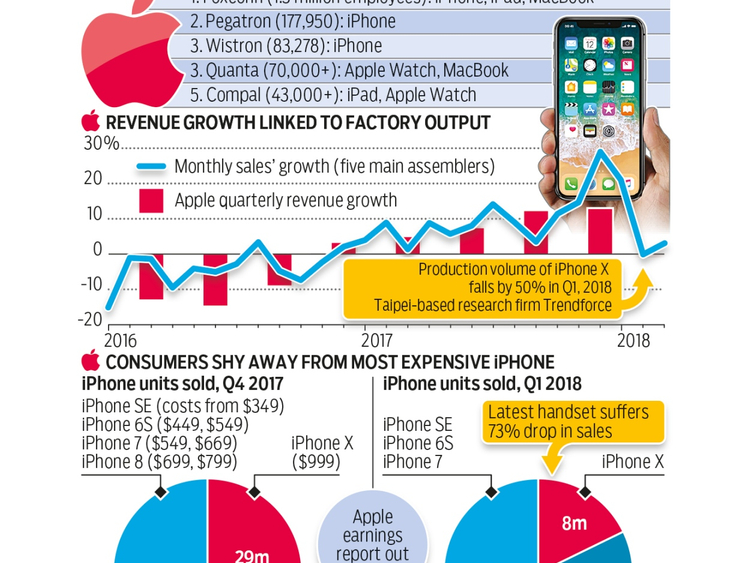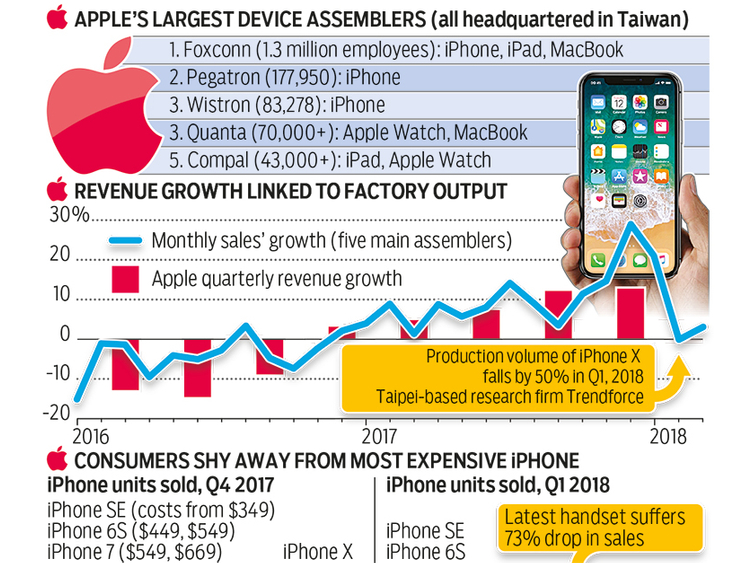Taipei: Investors hunting for clues to the iPhone X’s reception can take a deeper look at its main manufacturing partners. And the latest doesn’t look good.
Apple’s five largest device assemblers reported a sharp slowdown after peaking at the end of last year, suggesting demand for the high-end device may have faded just a quarter after its release.
While Hai Precision Industry Co, Pegatron Corp and three other key suppliers reported an eight per cent rise in their total sales across the March quarter, growth slowed sharply later in the period — a drop that in the past has presaged a downturn for Apple.
The concern is that the iPhone X, while enjoying a customary holiday quarter spike for new-generation Apple gadgets, fizzled out rapidly. Apple’s costliest smartphone has struggled to draw customers in emerging markets, while competitors from Huawei to Xiaomi roll out more premium phones and dominate China — the US company’s biggest foreign market.
On Friday, Morgan Stanley cut its estimate on iPhone shipments by 6 million, underscoring the growing unease since Taiwan Semiconductor Manufacturing Co, the maker of iPhone processors, issued a disappointing outlook that triggered a 7 per cent loss in Apple’s value over just two days.
Revenue
Apple’s sales growth bears close correlation with that of its main quintet of assemblers, which depend on the iPhone maker for their own business growth — Hon Hai alone gets about half its revenue from Cupertino. While it’s difficult to translate their numbers directly into Apple’s, a look at reported figures since 2016 suggests it’s possible to draw certain conclusions at the general health of the US smartphone titan’s top-line.
The group is responsible for finishing most of Apple’s gizmos: Hon Hai, Pegatron and Wistron Corp. assemble iPhones. Hon Hai also has a role in other Apple products, splitting MacBooks with Quanta Computer Inc and sharing iPads with Compal Electronics, Quanta and Compal also make Apple Watches.
Hon Hai and crew can indeed offer insights into Apple’s sales but to a limited extent, said Jusy Hong, a director with IHS Markit. While Hon Hai, Quanta and Pegatron both rely on Cupertino for more than half their business, Wistron and Compal are far less dependent on Apple, according to data compiled by Bloomberg. In addition, as hardware mavens, their operations would have no impact on sales of software and services, a significant and growing part of Apple’s top and bottom line.
“It’s true that they are major assemblers of Apple but at the same time they have other customers,” he said in an email.














